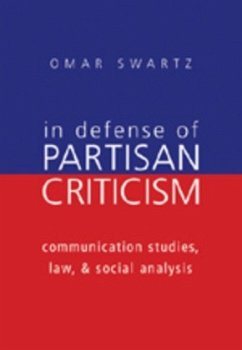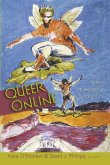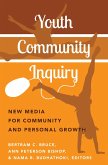In Defense of Partisan Criticism is a far-reaching exploration of the legal, philosophical, and rhetorical basis for understanding social justice in the United States. Through a thoughtful investigation of key political, social, and legal events in the history of the United States, Omar Swartz develops a compelling argument for engaged political scholarship by American academics, and offers readers a critical understanding of the place of race and class in American cultural history. Central to this understanding is an awareness of the «communication imagination» - the power of citizens to name the constraints placed upon them by U.S. political and legal institutions and to counter those constraints with narratives constructing a more socially just society based upon a wider sense of human identification and partisan engagement than is currently practiced in the normative U.S. public sphere.
«A strength of this book (an intellectual autobiography of a scholar committed to social justice) is that the author's bias and values are unconcealed and are themselves sites of inquiry, analysis, and inspiration. This human and humane approach to criticism contributes to an academic culture more practically useful (less 'precious' in Kenneth Burke's sardonic use of the term) in encouraging social interaction with the aim of progressive (and transformative) social and political impact.» (Phillip K. Tompkins, Professor Emeritus, University of Colorado, Boulder)
«This is one of the rare books that both challenges the 'merely academic' and rises above it. It speaks to academics and nonacademics and makes a serious and genuine contribution to our intellectual life.» (Philip Wander, Professor of Communication Studies, San Jose State University, California)
«This is one of the rare books that both challenges the 'merely academic' and rises above it. It speaks to academics and nonacademics and makes a serious and genuine contribution to our intellectual life.» (Philip Wander, Professor of Communication Studies, San Jose State University, California)








